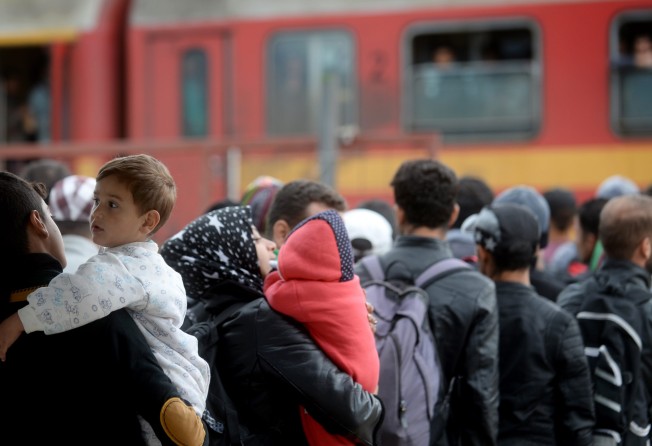Europe's thorny refugee dilemma a reflection of world's failure to deal with Syrian conflict

If any prospective destination could be expected to empathise with the plight of refugees, it might still be Europe, which saw the mass movement of millions after the second world war. A European community of 28 nations with freedom of cross-border movement is now, understandably, a magnet to refugees, who are willing to risk their lives to get there. The result is the largest migration of its kind since the postwar years, mainly from war-torn Syria. But instead of uniting Europe in compassion according to its core ideals, it has divided it, prompting dire warnings. German Chancellor Angela Merkel said the refugee crisis is potentially an even bigger challenge to European unity than the Greek debt crisis. French President Francois Hollande has warned that without a greater collective effort, the ideal of open borders is in peril.
But it took something profoundly poignant to make any difference - the image of Syrian three-year-old Aylan Kurdi lying dead at the water's edge on a Turkish beach, one of untold numbers to perish as families sought a new life in Europe.
Britain, which had dismissed the idea of EU-mandated quotas, promised to resettle 20,000 Syrians over five years. France undertook to accept 24,000 more refugees and Germany, which already excepts to receive 800,000 refugees this year, pledged billions in new funds to integrate them.
But tension and conflict continues as refugees, easy prey to human traffickers, pour in by sea across the Mediterranean and by the land corridor through Turkey and the Balkans.
The realities do not bode well. Four million refugees from Syria alone are living outside their country. When it comes to sharing the refugee burden, eastern Europeans reject quotas. Polls show most Britons also reject them and most French people oppose easing asylum rules.
Merkel may cite a legal and moral obligation to accept genuine refugees, but European politicians must also respect the wishes of their voters, which resonate with Australia's stop-the-refugee-boats policy and Republican presidential hopeful Donald Trump's ratings success in attacking illegal migrants.
The dilemma of European leaders reflects a failure of international co-operation to address the Syrian conflict that lies at the root of the refugee crisis, compounded by the emergence of the brutal Islamic State. Hopefully Russia's signals of interest in stronger diplomatic engagement alongside the US will fill the vacuum in which IS thrives and prevent Syria becoming a fixture of regional destabilisation.